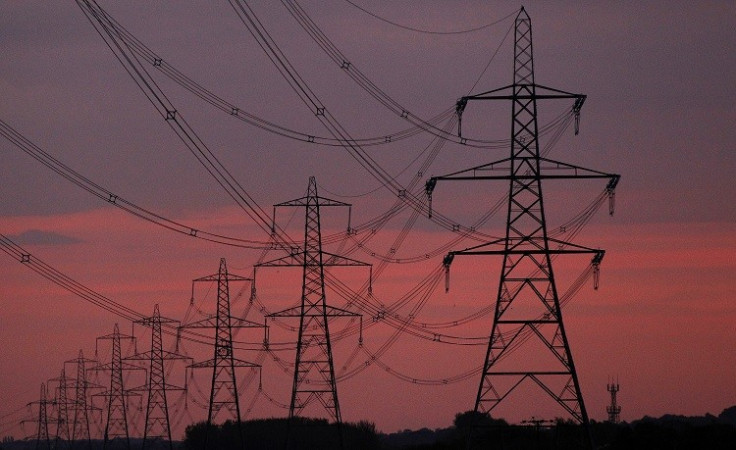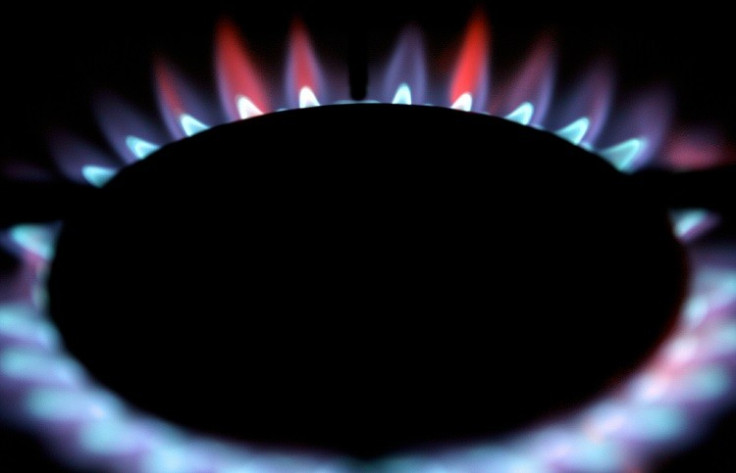My South African Adventure: Land of Power Outages and Rolling Blackouts

I can't think that I've witnessed scheduled rolling blackouts since I was a child during the dark days of the 1970s.
But I do remember the inconvenience of what seemed like endless power cuts as the lights were suddenly extinguished and we were bundled off to my grandma's to indulge ourselves in the warmth of her coal fire.
In a just-in-case kind of way, my mam still insists to this day that her electric cooker has a gas hob so that eating can be assured one way or the other. Such scars run deep.
So needless to say, it was a rather unpleasant blast-from-the past last week when, yet again, the lights went out. After a week or so of relentless, sleeting rain across the entire eastern region of South Africa, which unfortunately included Gauteng, it turned out that state monopoly, Eskom, was suffering a soggy coal problem.
While this may sound like the lamest excuse ever when you're chucking fossil fuel into a mega-hot furnace, apparently it's legit – Eskom chief executive, Brian Dames, announced it to the world himself that the power outages were the result of wet coal from opencast mines, which by default were vulnerable to the weather.
To make matters worse, because it was allegedly too costly for the utility to cover its entire stockpile - with anything apparently - the heavy rain had also ended up soaking much of its existing coal supply.
This situation, combined with a portfolio of ageing power stations that are currently under maintenance until a couple of much delayed new installations come online mean that warnings over how tight energy reserves are, have been going on for months.
In the dark
The upshot of this debacle last Thursday though was that power had to be rationed and a two-hourly rotational 'load-shedding', or planned rolling blackout, schedule put in place across the country – a scenario not experienced on this scale since 2008 when a similar debacle cost the South African economy a stonking R50bn (£2.8 billion).
So after things had begun to look hairy last week, businesses were asked to reduce their power consumption by 10%, but it was just too late. We were in for it.
And so it was that the full onslaught of this policy to save the national grid from collapse hit my humble abode in Parkhurst a tad before 8pm, but luckily just after I'd had my dinner.
As I scrambled around for my candles hidden carefully away in cupboards that I could no longer find, however, I realised with some trepidation that my house was now apparently unprotected.

As the electric fence and internal security system were currently without power to feed them, I felt distinctly vulnerable – and I'm not usually the neurotic type. But my Beloved was away travelling on work and I was all alone in a city with a shocking reputation for violent crime.
As a case in point, the hard-working guy who comes to do our garden every Monday had been accosted at gun point by a couple of thugs only the week before. He had been withdrawing his monthly wages from an ATM at the time, but in the blink of an eye was left destitute, with rent and nursery fees for his young child to pay for. Awful.
And if I were a robber, I'd certainly have been inclined to take advantage of the fact that it was dark and everyone's security systems were down.
Hence sitting for the next two and a half hours jumping at every sound while trying to read my book by candlelight – and ensuring that my mobile phone was firmly in my line of sight so that I could alert our private security firm, Cortac, should the need arose.
Welcome to Africa
It turns out though that I had nothing to worry about as, according to my Beloved, these systems have 24-hour batteries to keep them going. But I certainly felt more reassured when he was sitting beside me on Sunday night as power went out again for an hour. There's nothing like (even ephemeral) safety in numbers.
Apparently that particular little incident won't be the last of it. Eskom has made it clear that a combination of the unseasonal rain and expected high demand as winter comes ever closer mean that there could be more scheduled electricity cuts over the next couple of months.
According to a posting on the local Democratic Alliance party's website - the Eskom one couldn't seem to offer information on anywhere in Johannesburg's northern suburbs that I checked anyway –should demand exceed supply again, it'll mean that the lights will go out in Parkhurst and its environs from 6pm to 10pm on Tuesday, Thursday, Saturday and Sunday nights. Oh joy.
Very sensibly though, a lot of local businesses already seem well prepared – presumably in the wake of similar problems six years ago.
My dentist, for example, assured me that, should the power go out in the middle of my second root canal treatment this year, I had nothing to worry about because he had his own generator. Which was, of course, a blessed relief and did serve to ease my discomfort somewhat.
But he's certainly not the only one. Our local restaurant and bar area, Fourth Avenue, still seems to be keeping the lights on in the main. While some organisations have their own generators, it seems that others share with their neighbours, while yet others rent capacity to third parties in the same building. Which is all very entrepreneurial of them, it must be said.
As ever though, after the first shock of the crisis, everyone seems to be remarkably sanguine about it all. "Oh well,' they say, rolling their eyes. "It is what it is. Welcome to Africa."
Cath Everett is a resting journalist who has written about business, technology and HR issues for over 20 years. She recently moved from the UK to South Africa with her husband
© Copyright IBTimes 2024. All rights reserved.






